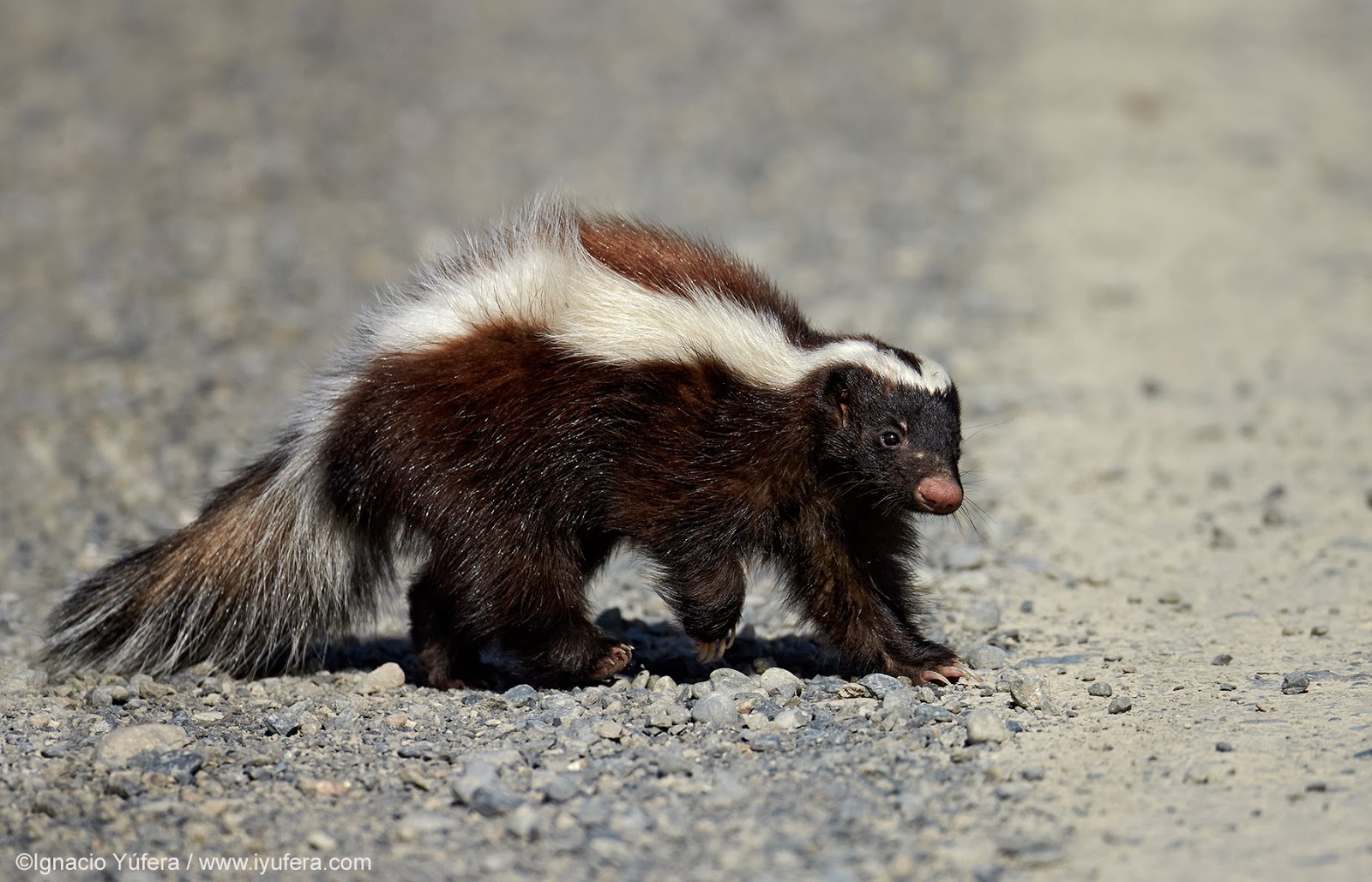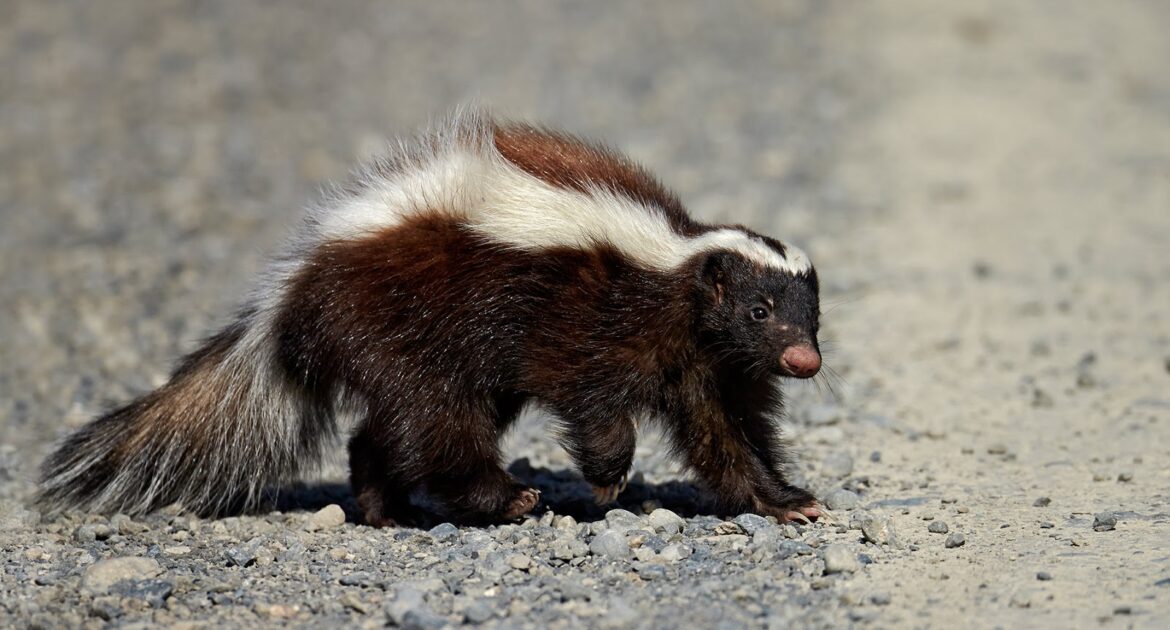The gentle, timid skunk often gets a bad reputation because of the not-so-gentle stench it emits when threatened enough to spray (or when the poor creature gets hit by a car). Another mark against this striped mammal for many is that it is a known rabies carrier. If you spot a skunk making a home on your property, contact Skedaddle for humane wildlife control in Okanagan. Attempting removal yourself may result in you getting sprayed, but is it possible that you may also be exposed to rabies in the process? Read on to find out about skunks and rabies in BC.
What Is Rabies, and Why Is Everyone So Worried About It?
The Rhabdoviridae family of viruses is responsible for the rabies viral disease that can infect any mammal species. This aggressive microorganism attacks its victim’s nervous system and eventually goes after the brain. The disease is almost always fatal, which is why many veterinarians recommend rabies vaccinations for pets even though BC doesn’t legally require it. If a pet gets sick from the virus, it can pass it on to its two-legged family or other humans before it loses its battle with the illness.
Rabies Symptoms
When a mammal contracts the virus, it can take weeks or months before symptoms appear, but once they do, it’s generally too late to fight the disease. Symptoms don’t show up until the virus reaches the brain, and early signs often look like the flu. Rabies indicators in humans include the following symptoms:
- Fever
- Headache
- Anxiety
- Confusion
- Mental dysfunction
- Agitation
Fewer than 20 people have ever survived a rabies infection once signs appear. Animals infected with the virus may transmit it before showing obvious symptoms, as the signs of infection can be hard to recognize. You can see why people are worried about rabies!
Rabies in Okanagan Skunks
The good news for Okanagan residents is that the skunks here do not transmit rabies. While they can contract the disease and are known carriers in other regions of North America, no skunks in BC have ever passed the disease on to another animal or human. The only mammalian carriers in the province are some bat species, though infection rates in bats are low.
If Skunks Don’t Carry Rabies, Why Is Skunk Removal From Your Property Important?
Though this shy and gentle critter doesn’t transmit rabies in Okanagan, you still don’t want one living on your property. While skunks perform essential roles in nature, they aren’t great houseguests, particularly when they establish a den under your porch or deck.
Skunk Behaviours
This black-and-white, fluffy-tailed creature is nocturnal, so you rarely see them during the day. They are omnivorous and have very flexible diets. They eat everything from rodents and insects to the leftovers from your garbage bin. Their claws are great for digging, but they don’t have the raccoon’s dexterity, so they aren’t as good at breaking into secured containers. They can’t see very well, and they aren’t good climbers. Skunk’s digging behaviours can be destructive, and if you have a garden, they may get to the goods before you can.
Skunks’ main form of defence is their spray. These little guys are judicious in using their one weapon and give ample warning before turning their tail on their target and releasing the oily liquid. It can take 10 days to replenish, so spraying is a last resort. However, if one lives under your house, it may release its spray when startled or during mating season. Additionally, though skunks in BC don’t carry rabies, they can transmit other diseases such as distemper and leptospirosis.
Who Can You Call for Humane Wildlife Control in Okanagan?
Skedaddle is here to help homeowners who discover a skunk living on their property. We practice safe and humane skunk removal techniques, and we can take care of the issue without getting sprayed! Get in touch with us today to learn more about our services, and how we can help with your skunk problem.




